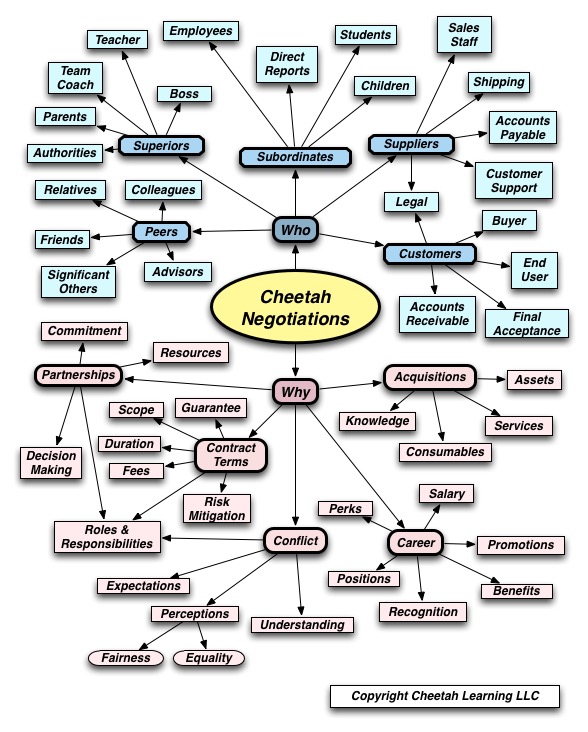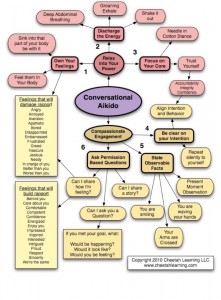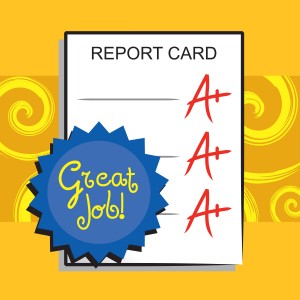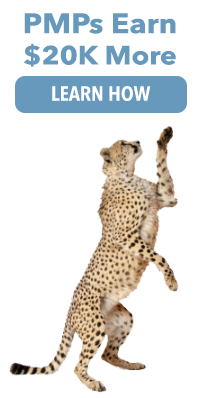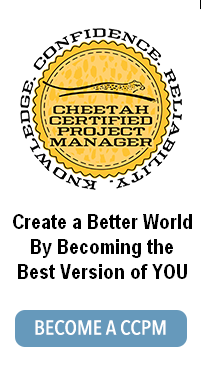High Performing Business – Discernment – Patience
Thursday, November 24th, 2016Michelle LaBrosse, CCPM, PMP, PMI – ACP, RYT
Practicing patience helps reign in often destructive impulsive desires. Taking time to work through the details in both project planning and negotiation preparation templates, Cheetah Certified Project Management students master the skills that improve their abilities to discover the approach that will bring out the best in everyone. Slowing down and taking the time to discern which options can generate the best outcome, actually speeds up success.
Practicing project management, Cheetah Certified Project Managers improve their abilities to be patient in three specific ways:
1. Goal Realization
Cheetah Certified Project Managers master breaking down the pursuit of a goal into small incremental steps where success gradually builds over time. Success breeds success – and when you are buoyed by the previous accomplishment you are inspired, and energized to continue. Doing this for yourself is one thing, but learning how to mentor, coach, and lead others in doing this based on leveraging their innate strengths helps Cheetah Certified Project Managers develop exceptional teams. Following proven project management practices develops the capability to patiently put in place all the building blocks required for achieving your goals.
2. Risk Management
Impulsive people often do not fully think through the risks that can derail the most energized initiatives. Cheetah Certified Project Managers master how to assess, quantify and mitigate potential risks to achieving their goals. And often in the process of methodically and patiently reviewing what could go wrong and how they could prevent or mitigate the challenge, they often create better approaches than if they had just rushed into the first approach that comes to mind.
3. Priority Setting
We’ve all been there – encouraged by the early success of an effort, we expand what we want to pursue. In Project Management language, this is known as “scope creep.” Lets say that you have started to remodel your bathroom because you needed to replace failing older plumbing. But once you get into it, you think – “wow wouldn’t it be nice to move the washer and dryer from the basement to where we generate the laundry.” You now have a new project, with a substantially larger scope and budget, possibly exceeding the skills of the team you have in place to do the initial project. This new project has new risks, and a great chance of failing if you do not revisit your initial priorities – which were to replace failing older plumbing. Cheetah Certified Project Managers clearly define their priorities in the project planning activities. When they get new “inspirations” – they have the patience to look at the new ideas from many angles to assess if it really makes sense to pursue this new path.
Patience is an often overlooked virtue that can improve the ability to discern a better, easier and quicker path to success. People who become Cheetah Certified Project Managers master the techniques that bring out their best with the patience to guide others to leverage their innate strengths as well. They create an up spiral of success for everyone in their life. Register for the 60 hour online Cheetah Certified Project Manager program today and master the practices that bring out the power of patience. Use the promotion code – “Discernment” for a $100 discount. (This offer is limited to the first 100 applicants).



